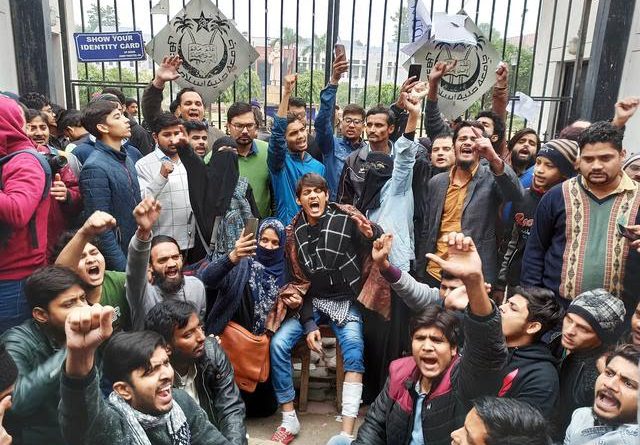Checking on friends and missing class: protests bring fear to India’s campuses
I don’t think I can ever feel completely safe, either in the girls’ hostel or on campus
Bengaluru (Reuters) – One of India’s most famous universities is half-empty and some students who are on campus track each other on mobile devices to ensure people are safe, as violent clashes spill on to campuses that are seen as a hotbed of anti-government protests.
The country has been rocked by demonstrations against Prime Minister Narendra Modi’s new citizenship law that some say discriminates against Muslims. At least 25 people have died and thousands of people have been arrested.
Many of the most visible and persistent protests have been in and around universities, and some students now fear for their safety following clashes with police and unidentified mobs in recent weeks.
“I don’t think I can ever feel completely safe, either in the girls’ hostel or on campus,” said Nayla Khwaja, a student at New Delhi’s renowned Jamia Millia Islamia university.
Last month police smashed their way into the institution, firing tear gas shells as scores of terrified students barricaded doors and hid inside bathrooms.
Weeks on from the violence, large parts of the college remain deserted, with some parents refusing to allow students who flock to the university from all parts of India to return.
Less than half of the 20,000-strong student population is back on campus for the new semester, according to college chief proctor Waseem Ahmad Khan.
Beyond the capital, protests have also erupted in colleges in Mumbai, Bengaluru, Kolkata and Chennai.
In some cases they have spilled into nearby town squares, with citizens holding Indian flags and demanding the revocation of the law in the most sustained opposition to Modi since he first swept to power in 2014.
Students say they are concerned about further attacks which they blame on right-wing groups tied to the ruling Hindu nationalists.
“There is an environment of fear that was never seen before,” said Saheb Samanta, a PHD scholar in Kolkata’s Jadavpur University.
Students have taken to sharing live locations on WhatsApp with friends when attending a protest or going to class so they know who is where, a dozen students enrolled in universities in Delhi, Bengaluru and Kolkata told Reuters.
“We are keeping some basic checks in place. Letting friends know where we are and also sometimes walking in groups within campus. This really wasn’t necessary before,” said a masters student at Jadavpur University.
Like others who described the extra precautions, she declined to give her name out of concern for her safety.



